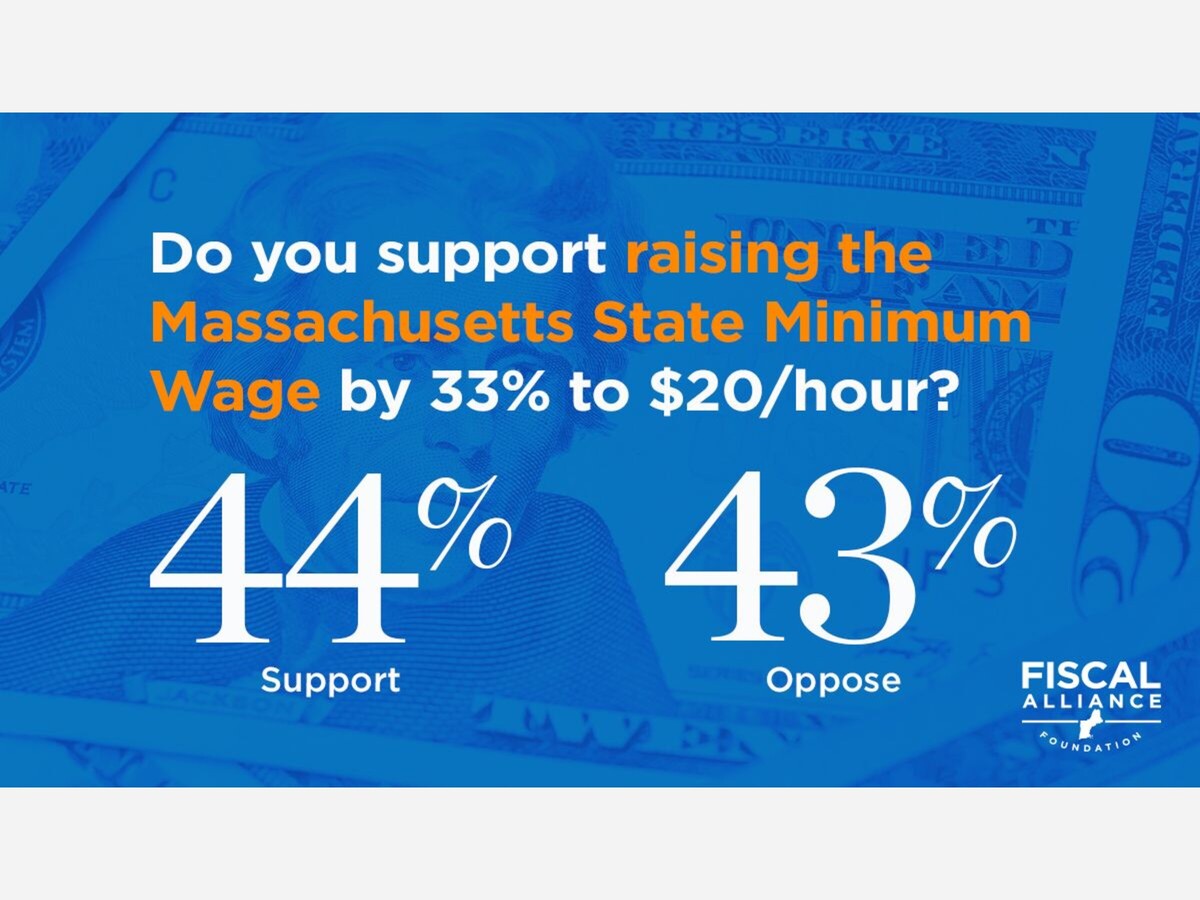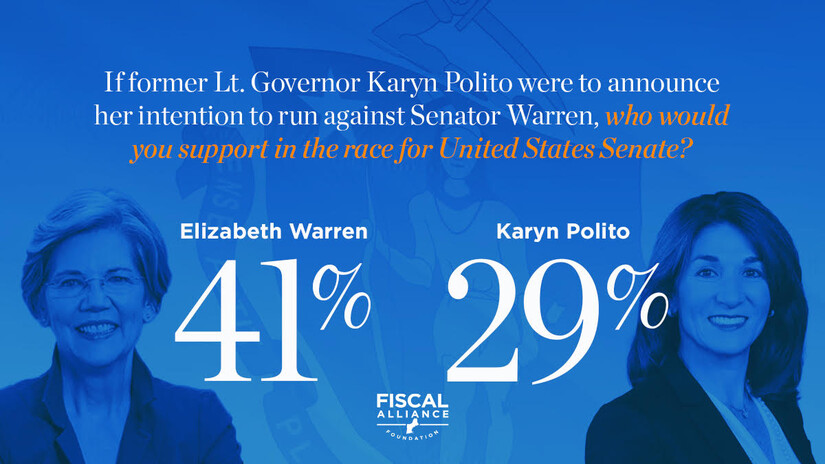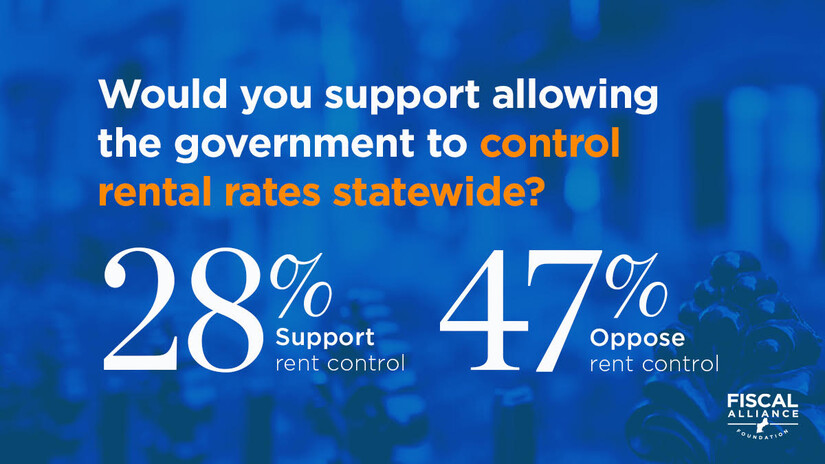Image

The Fiscal Alliance Foundation released the results of a new poll Friday that sampled Massachusetts voters on a wide range of policies and topics including rent control, a potential minimum wage increase, gun control, standardized testing, as well as a hypothetical United States Senate matchup between current Senator Elizabeth Warren and Former Lieutenant Governor Karyn Polito. This is the third poll released by the Fiscal Alliance Foundation since the beginning of the year, and it sampled 750 likely voters on both cell phones and landlines between July 21 and 22 with a margin of error of 3.6% at a 95% confidence level. A copy of the poll, including its crosstabs and topline data may be found at: https://www.fiscalalliancefoundation.org/new-statewide-poll-issues-ahead-of-ballot-question-deadline
Several of the approval ratings for state and federal politicians saw movement from the Foundation’s May Poll. President Joe Biden’s approval saw a slight increase, now coming in at 53%, while former President Donald Trump saw a decrease of around 6% to bring his approval to just 30%. In 2022, President Biden carried Massachusetts with 65% of the vote while former President Trump received 32%.

U.S. Senator Elizabeth Warren continues to poll below 50% when matched in a head-to-head contest. In May, the Fiscal Alliance Foundation poll showed former Governor Charlie Baker ahead of Warren, 49% to 34%. July’s poll against former Lieutenant Governor Karyn Polito shows Warren ahead 41% to 29% with 30% undecided. Outside of her staunchest supporters, Warren’s numbers are soft for an incumbent seeking a third term; she is in a virtual tie among independents when going head-to-head with Polito. “Undecided” is ahead of voters who picked Polito.
Wednesday, August 2nd, is the last day any potential ballot questions for 2024 may be filed with the Attorney General. In anticipation of that deadline, the poll asked several questions that are rumored to be considered.
The poll asked various questions relating to rent control, with support for Mayor Wu’s plan remaining under 50%. This is the second time this question was asked, the last being in May, and both times support was below 50%. Whether or not Mayor Wu goes through with pursuing a ballot question, polling is showing proponents of Mayor Wu’s efforts are facing stiff headwinds early on.

When asked a question slanted in favor of rent control proponents, 59% supported it while 26% opposed. Support eroded when survey respondents were presented with the consequences of the policy. When faced with the possibility of the government controlling rental rates, 47% of respondents reported they would oppose rent control, while only 27% said they would support the policy. When asked if they would support rent control knowing that it would lead to less investment and upkeep of existing rental stock, 40% stated they opposed it and 26% stated they supported it. Finally, when asked if they would support rent control knowing it would lead to a decline in housing production, 38% said they would oppose it while 31% said they would continue to support it.
“There are reasons why voters rolled back rent control at the ballot box in 1994 and this poll shows why proponents will have a hard time when voters hear about the consequences of the policy. Voters who expressed initial support for rent control changed their mind after hearing about unintended consequences, such as impacts on maintenance and upkeep, which plays into property values,” stated Paul Diego Craney, spokesperson for the Fiscal Alliance Foundation.
The poll also touched on several other potential ballot questions. When asked whether they supported raising the state minimum wage by 33% to $20/hour, only 43% supported an increase, while those opposed were also at 43%, and undecided at 13%. Combined for opposed and undecided were at 56%. Within the crosstab data, a majority of Independent and Republican voters oppose raising the minimum wage. Respondents were also asked whether they support the state requirement that students must pass a 10th grade standardized test in order to graduate. They showed overwhelming support for this with 63% supporting the requirement, including a majority of Republican, Democratic and Independent voters, and only 25% opposing.
“These two issues show that if these items were to be put forward as ballot questions, their union proponents would have a tough road ahead of them. The state minimum wage has seen a rapid increase in Massachusetts, all while inflation and automation have increased. Perhaps voters are connecting the dots that when the cost of labor goes up, so does the cost of goods. Voters also seem extremely solidly behind the idea that students should be required to pass a standardized test in order to graduate high school. If the teacher’s unions want to pursue changes to this, they will need to convince voters from all major parties,” noted Craney.
The final question asked concerned Massachusetts gun control laws. While 36% of those surveyed felt that Massachusetts laws were not strict enough, 56% of respondents indicated that they felt that Massachusetts gun laws were either “Too Strict” or “Just Right.”
“Massachusetts already has some of the strictest gun laws in the country and only 36% of people seem to want to make it stricter. A strong majority feel that our current laws are fine as is, or even go too far. This is certainly not the level of support I’d want to see if I was Speaker Mariano trying to push a controversial 140-page gun control bill through without a public hearing,” noted Craney.
The poll surveyed 750 likely voters and was in the field on July 21 and 22, 2023. The margin of error is 3.6% at a 95% confidence level.